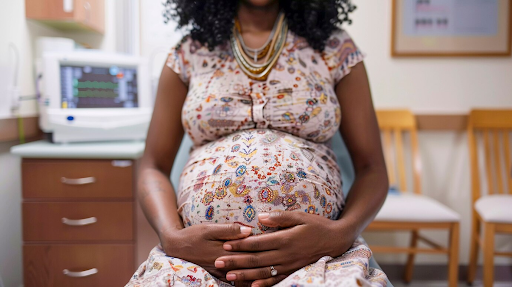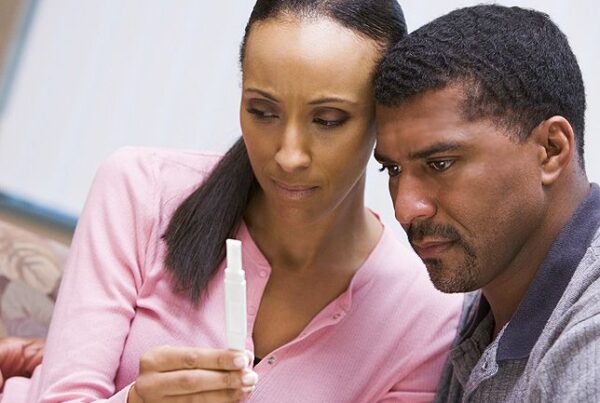One of the most topical issues concerning female factor infertility currently making the headlines is Egg Freezing – a method of preserving a woman’s fertility so she can have children at a later date.
The procedure involves collecting a woman’s eggs, freezing them (cryopreservation) and then thawing them later on so they can be used in fertility treatment. Depending on the woman’s age at the time of egg freezing and the number of available eggs, clinical pregnancy rates are estimated at 4-12 percent per egg.
Egg freezing is a deliberate attempt at preserving fertility by freezing the eggs when the woman is young and the eggs are of the highest quality so that she can conceive and have her own family in the future.It is an option for women that require fertility preservation for social or medicalreasons to delay childbearing. It is a preferred method of fertility preservation in single women who can’t store embryos as there is no sperm to use in fertilizing the eggs
Penultimate week, there was caution over the practice of social egg freezing as suggested by the Royal College of Obstetrics and Gynaecology. This development occurred just as celebrations were rounding off on advancements made in the last 40 years in the field of IVF heralded by the birth of the 1st IVF baby, Louise Joy Brown.
Earlier in this series, we established that a woman’s chances of conceiving naturally fall as she gets older because the quality and number of her eggs drops.
We already know that for a number of reasons and not essentially out of choice, women now postpone raising families due to many social factors including educational/career pursuits and the unavailability of the right partners.
Egg freezing helps to put the “physiological clock” on hold. Professor Joyce Harper of the Kings College London recently pointed attention to the sharp rise in the uptake of the technology in the UK when she noted that “egg freezing had tripled in 5 years”.
She however also pointed out a very salient observation that “a large number of the up takers are over 37 years” – a group with lower chances of success when the eggs are needed.
My experience in Nigeria is that many people who come for enquiries about egg freezing are not suitable as many of them are in their 40’s and only want to use this as a “last ditch effort”. I even met a 50-year old woman who claimed she just stored her eggs in one of the clinics that is not even a fertility clinic!
In 2016, Dr. Timothy Bracewell Milnes reported the experience both at the Imperial College and Chelsea and Westminster Hospital, London in a review of 1,173 egg freezing cycles that showed that only 32 percent of the women were 35 years or below, confirming that even in the UK, women are using egg freezing as a last resort instead of a planned and informed choice in their early to mid-thirties.
The implication of this is that women in their late thirties would need about 30 eggs stored to have a good chance of achieving pregnancy due to lower success rates per egg with increasing age in women.
To achieve this number of eggs, these women would probably need to undergo an average of three cycles of ovarian stimulation! In addition they also have to contend with the storage fees together with the cost of fertility treatment using their frozen eggs in the future.
The question is, if social freezing in its present usage is not the silver bullet, what then should we be doing? My view is that we have a brilliant technology in the present method of egg freezing – vitrification. All that is needed is a little modification in its application.
A lot of emphasis and effort need to be placed on fertility education. My first effort in this direction “fertility quiz” was recently concluded, over 700 respondents took part and only 20 got the right answers of which 10 were finally selected as winners by ballot. This was designed to assess public knowledge about fertility and it’s going to be done more regularly on my website (www.abayomiajayi.com.ng). More emphasis needs to be placed on educating girls and women on how to achieve their fertility potential naturally, bearing in mind the natural decline in fertility as they make life decisions. They need to understand the risks of age-related complications in pregnancy, child birth, miscarriage and still birth rates.
Practitioners of reproductive health should also place emphasis on factual education of their clients on the limitations that age has an outcome of fertility treatments including IVF.
One of the problems in countries like Nigeria is the absence of credible national data for educating our clients. Many practitioners have had to resort only to personal data. I am happy to announce that this will soon be a thing of the past, as the National Fertility Association, the Association of Fertility and Reproductive Health of Nigeria (www.afrhNigeria.org) is collaborating with the American Society of Reproductive Medicine (ASRM) to collect national figures in Nigeria especially concerning outcome of fertility treatments.
Other attempts aimed at obtaining national data include the recently launched national dysmenorrhea study among secondary school girls in Nigeria. This intervention is championed by the Endometriosis Support Group, Nigeria.
The aim is to interview about 30,000 girls across Nigeria but this exercise is not only aimed at data collection but also to make fertility education available to these young Nigerians.
In conclusion, I would emphasize that we do not interpret the caution of the RCOG out of context. There is no doubt that the present dilemma of egg freezing is not with the technology but the fact that it is not getting the attention of the women who can get its maximum benefit.
Egg freezing is currently being used by older women as a last ditch effort than a well-planned intervention. Vitrification offers single women an extension of the window of opportunity to put the dreaded “physiological clock” on hold!
I couldn’t agree more with Adam Balen, Professor of Reproductive Medicine and Spokesperson of the Royal College of Obstetrics and Gynaecology when he said “success rates of egg freezing have improved significantly in recent years, to offer an opportunity for women to freeze their eggs for social reasons, if they are not ready to have children yet. However, it must be stressed that egg freezing does not guarantee a baby in the future”.
Balen continued: “While women should be supported in their choices, they must be informed about the side effects associated with egg freezing and IVF treatment. If a woman decides to freeze her eggs for social reasons, she should have counselling with a reproductive specialist and choose a clinic that has extensive experience. Evidence suggests that the best time to freeze eggs is in a woman’s early 20s and certainly under the age of 37 years.





